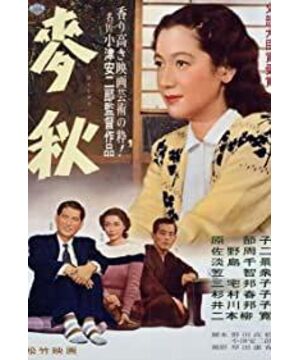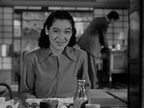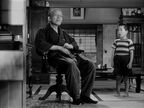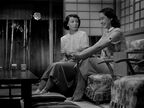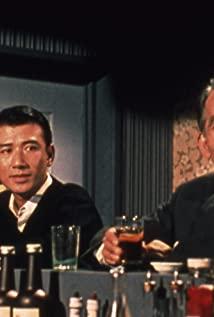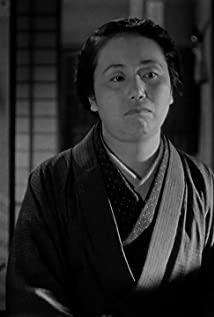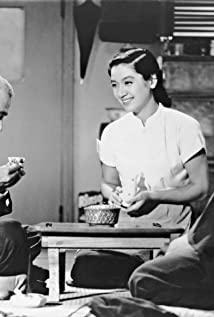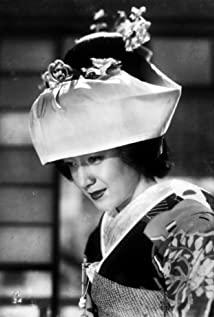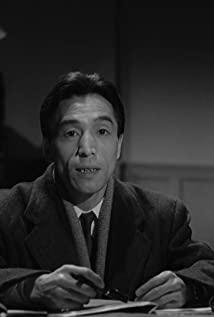Autumn is coming. When the wheat is ripe, it has to be harvested... A woman is mature and is about to get married... This is the metaphor of the movie's title and the ending scene... Ozu's film is very interesting. It's not that a single father or mother wants to get married. It's just that the old girl is looking for a husband, plus the broadcasters are always Setsuko Hara and Kasa Chijo, the same stylized narrative language, the audience will change after watching a few movies, and the movies are strung together, as if it became a series... This film belongs to the finalized style of Ozu's later works, not to mention empty shots, long shots, and delicate shots. The same is true for tatami shooting. There are also wonderful but redundant lines, positive conversations, small floating movements, and a little more. Interestingly, it seems that similar movies will have two protagonists chatting in the depth of field of the beautiful scenery. This movie is Setsuko Hara and his sister-in-law, which constitutes Ozu's movie aesthetics... The interesting thing about the movie is that between a few girls The depiction of the unmarried and married is divided into two factions, lively and lively... During this period, due to the cooperation with Noda Takao in the screenwriting, we found that from the perspective of Ozu, the families concerned were all middle-class families. In this regard Due to the background of the two of them, it is also in line with the tastes of the post-war moviegoers. The role of Hara Setsuko in the film is actually not rich. From never getting married to suddenly wanting to get married, the inner portrayal of this change is not clear. Of course, this may be more due to the pressure on society, and the play with female companions may be the reason why she wants to enter the family. What is more meaningful is that because of her marriage, the three generations are facing separation, which is very In the family structure of Japanese taste, Ozu wants to present Japanese culture, especially tradition. Under this big structure, everyone has no choice but to complete their own standard actions, but Ozu does not criticize, he just presents, Because in his philosophy, family is the root of everything, and standard actions can be understood and accepted by Japanese people. Just like Setsuko Hara said, this is what Japanese families can give people, the so-called happiness...
View more about Early Summer reviews


